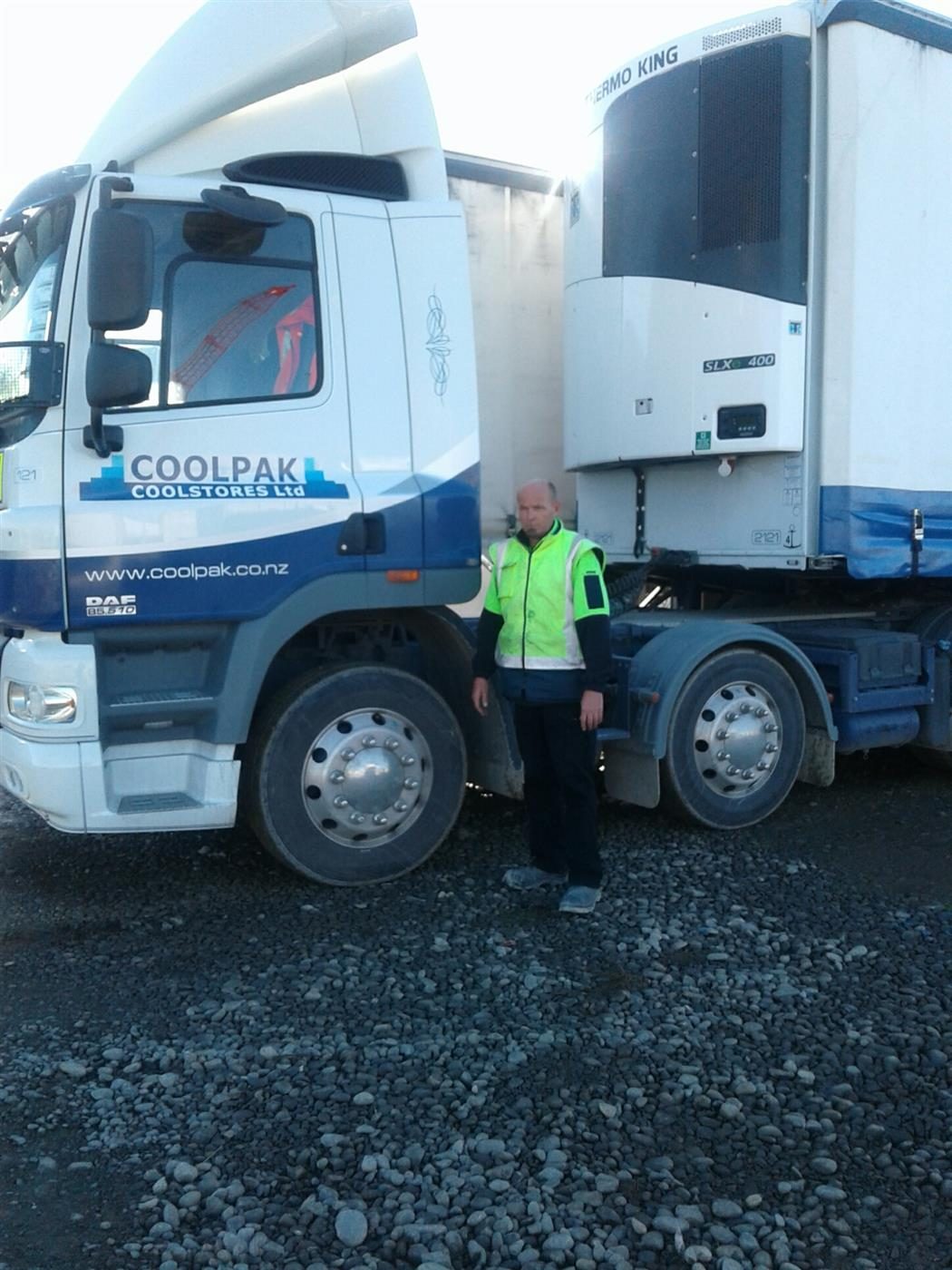
Craig
Each year about 9000 people will suffer a stroke – that‘s a rate of nearly one per hour.
Craig
Craig was working as a truck driver when he had his first stroke about six years ago.
“I didn‘t know what had happened,” he says. “I used to drive line haul, anywhere between Invercargill and Auckland, and the night before I‘d driven to Nelson from Christchurch. I came out of the motel unit and checked my truck over, and just felt like a brick wall had hit me. I managed to get back in my truck and sat there for about 20 minutes, and sort of come right. I didn‘t realise what had happened, so I loaded the truck and drove back to Christchurch.”
It took Craig seven and a half hours to get back from Nelson, so the following day he went to see his doctor. Despite conducting various tests, nothing was found and he was told he probably had picked up a bug.
About six weeks later Craig had another similar experience, but again doctors could not pinpoint the cause.
“I did spend a bit of time in
Several weeks later Craig suffered his third and most debilitating stroke.
“Bang, the last one hit and that was it,” says Craig. “With this
Thankfully Craig was not alone and his partner at the time called an ambulance to take him to hospital.
“I was in Christchurch Hospital for a good six weeks, and then they transferred me to Burwood. I spent about nine months there, learning how to walk again and how to feed myself.”
Within
“They had staff there who put me through physio. I went from wheelchairs to walking frames and just worked my way up really. I saw a lot of people give up in there too.”
Craig was determined to get back to
“I‘ve fought for four years to get all my heavy trades back and I finally got clearance about a year ago. I spend 80% of my time in a Combilift, loading and unloading trucks, and then when needed I jump in the trucks. But it‘s
Craig now works for Coolpak Coolstores and says his bosses have been very understanding about his medical background.
“They take the pressure off the driving side of it and helped put me in the Combi, which was my choice as well. But I still get out there and drive, when I can. I drive a 2016 DAF CF 510, fully auto, which helps.”
His current employer‘s support is in stark contrast to the company he was working for when he suffered his first stroke. As the doctors could not pinpoint the cause of his health problems, Craig had his driver‘s licence taken off him.
“The company I was working for when I had my first one turned around and said, ‘because you haven‘t got a licence, just resign‘. There was no backup or anything. You‘re basically left high and dry.
“So that was my whole world – gone. I‘d been in the game for over 20 years, and to have my livelihood and everything taken away from me was hard. I had rent and all the bills to pay. It was hopeless. I ended up going on the dole. I had everything ripped away from me and it cost me the relationship I had at the
Craig first began driving trucks part-time in 1990 and had been driving them full time since 1999. He says he‘d loved the lifestyle – “ever since I was knee-high to a grasshopper” – and like many
“When I had my first stroke, I was doing 70-hour weeks. You‘re never home and that was part of the reason as well, just pushing yourself too hard. I hadn‘t really had any symptoms; since the first one I‘d just felt unwell.”
Craig is now a lot more aware of his health and does what he can to keep well.
“There is a chance I can have another stroke, but with the drugs and medication I‘m on it reduces that risk to a minimum. I have a permanent limp and my whole left-hand side is pretty well numb all the time. Don‘t get me wrong, I can still pedal an 18-speed Road Ranger with the best of them.
“I get plenty of
It may be hard for some people to change the habits of a lifetime, but Craig says the best advice he can give is to step back and take a look at the big picture.
“Make sure you rest up when your breaks are

Stroke Foundation CEO Mark Vivian
Stroke Foundation CEO Mark Vivian says there is a misconception that stroke is an old person‘s problem.
“The reality is people of working age are also at risk. That includes truckies, office staff, warehouse workers – in fact, people right across the transport industry.”
Mark says high blood pressure causes a lot of strokes, so the best defence is to get regular blood pressure checks – once a year if you‘re over 45.
“Of course, if you‘re driving line haul and away from home a lot that can be difficult. But it‘s a really quick and painless process, and the fact is it could save your life, so make that appointment.”
He says whether sitting behind a steering wheel or a computer, it‘s easy for people to skip exercise and eat foods they shouldn‘t.
“It‘s not rocket science, but trying to fit a good diet and lifestyle into a demanding occupation really helps lower your risk. And don‘t smoke!”
Knowing the signs that someone is suffering a stroke are important, and Mark says everyone should know the FAST message – Face drooping, Arm weakness, Speech difficulty, Take action – call 111.
“It teaches you to spot the main symptoms of a




